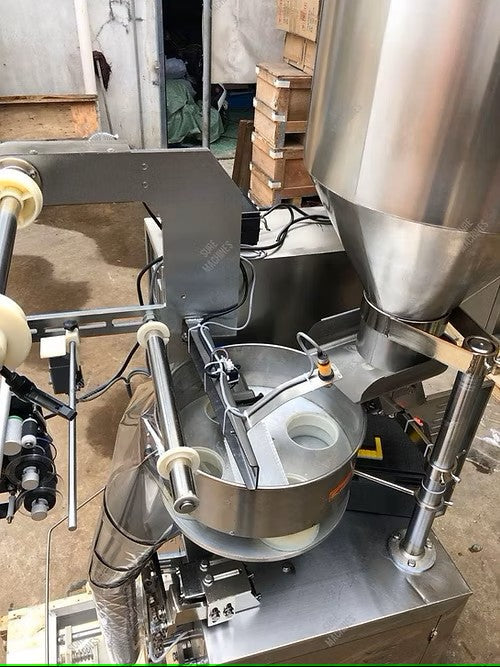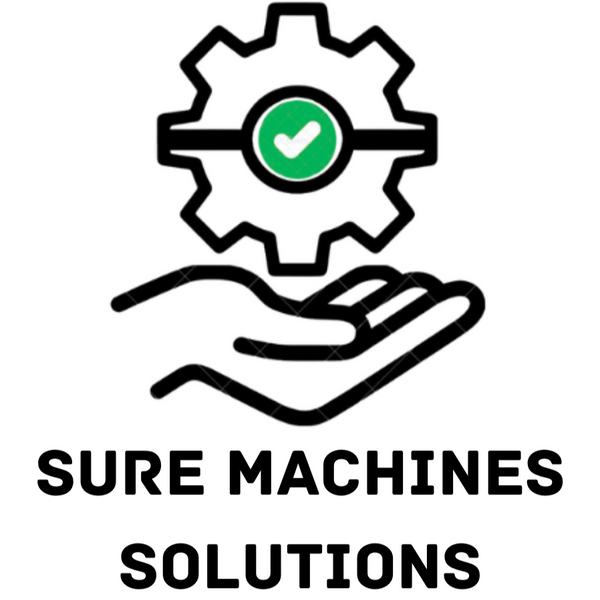
How to Choose the Right Industrial Machine for Your Business Needs
Share
Buying an industrial machine is not like buying a new phone. It’s a long-term investment that can either scale your business or drain your resources. If you're a serious business owner, this guide will help you make smart, strategic decisions.
Step 1: Understand Your Business Goals
Before purchasing any equipment, ask: What’s the goal? Is it to increase output? Reduce manual labor? Improve quality?
Tip: Define clear KPIs for what success looks like after the purchase.
Step 2: Know Your Industry Requirements
Different sectors require specific functionalities. A bakery’s needs are vastly different from a plastic fabrication plant.
Examples:
-
Food Businesses need machines with hygienic certifications.
-
Garment Factories require high-heat precision.
-
Plastics/Metals demand machines with durable cutting/molding capabilities.
Step 3: Consider Capacity & Scalability
Think beyond now. Will this machine handle more work if your orders double next year?
Checklist:
-
Daily/Hourly output
-
Max load limit
-
Possibility to scale up
Step 4: Review Energy & Operational Costs
Machines that cost less up front may eat your profits later through high maintenance or power bills.
Smart Move: Compare the machine’s efficiency rating with your local power cost.
Step 5: Test or Request a Demo
Always ask for a demo or video showing the machine in action. It reduces risk and builds trust.
Step 6: Check Spare Parts & Support
A machine is only as good as the support behind it. Can you easily find parts in Nigeria? Is support available within 24 hours?
Red Flag: Brands with no local service centers or distributors.
Step 7: Ask Other Business Owners
If you're unsure, ask others in your line of work what machines they use and what issues they’ve faced. Real-life reviews > marketing talk.
Conclusion
When you invest wisely in machines, you’re not just buying metal—you’re buying time, growth, and efficiency.
Need expert advice? Call or WhatsApp us now and let’s guide you step-by-step.
📞 08082284480 or 07041516852
Blog Post 3: Why Investing in Quality Machines Saves You More Money Long-Term
It’s tempting to buy cheaper machines, especially when budgets are tight. But the truth? Low-quality machines cost you more over time. Here’s why going premium is actually the smarter (and cheaper) move in the long run.
1. Reduced Downtime
Every time a machine breaks down, you lose hours or days of production.
Cost of downtime:
-
Lost sales
-
Delayed delivery
-
Employee downtime
High-end machines = less downtime = more money in your pocket.
2. Lower Repair & Maintenance Costs
Cheap machines = frequent repairs. These costs stack up quickly and often come at the worst times.
What to look for:
-
Warranty
-
Serviceability
-
Local parts availability
3. Better Output Quality
Top-tier machines deliver consistent, high-quality results.
Impact:
-
Reduces product rejection rate
-
Builds brand trust
-
Attracts better customers
4. Longer Lifespan
A machine that lasts 10 years versus one that breaks in 2 is clearly the smarter buy—even if it costs double.
Pro tip: Check user reviews and brand history.
5. Resale Value
Good machines hold value. If you ever pivot or upgrade, quality gear resells for more.
6. Compliance & Safety
Substandard machines may not meet safety codes or standards—putting your staff and business at risk.
Conclusion
Cheap machines are a short-term fix with long-term losses. Go for reliability, quality, and trusted brands.
Talk to us today—we’ll help you invest wisely.
📞 08082284480 or 07041516852
